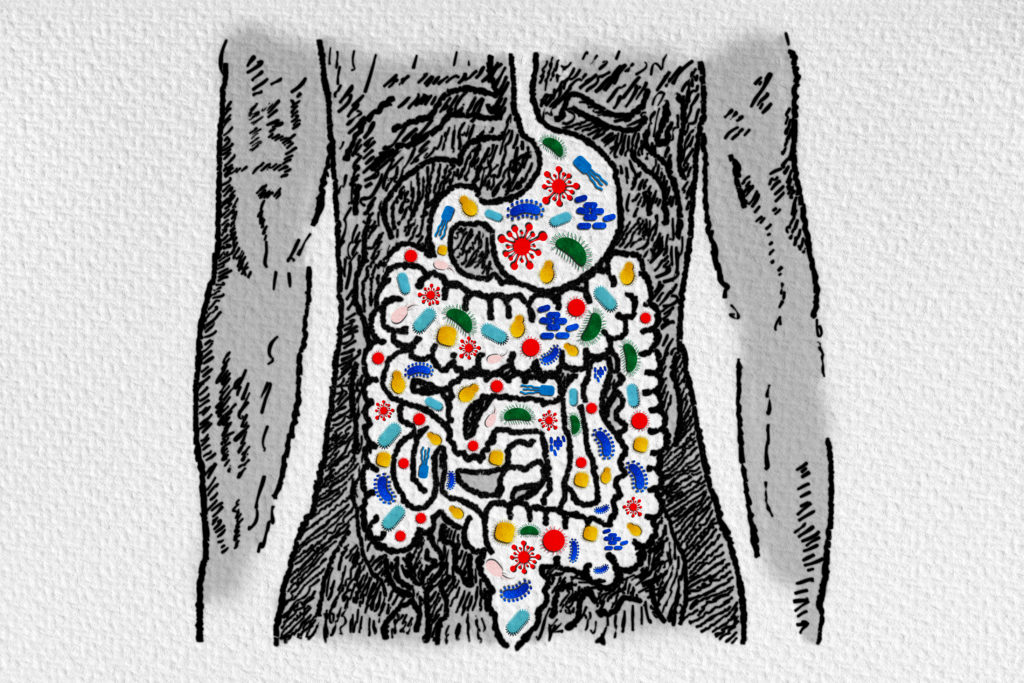Quick Hits
Daily brief research updates from the cognitive sciences

Who wouldn’t want to age better – well the results of an unsual study are in and the results are promising and may make many of you who are aging prick up your ears.
The results showed that by transferring gut microbiota from younger to older mice improved multiple signs of aging in the gut, the eyes, and the brain. So far so good but the method with which this is done may make you cringe. This transfer is done through faecal transplants, yes, that is transplanting poo, or matter from your gut!
Now though this may sound disgusting, this is also a known treatment in cases of gut disorders – with a lot of success. Indeed, I have reported on the multiple impacts of the microbiota, our collection of bacteria, on multiple disorders ranging from loneliness, to depression, to increased cognitive ability. It seems like our microbiota is an essential ingredient to remaining healthy and particularly also in aging well.
This particular experiment was focused on aging and also follows on from positive results from blood plasma transplants between young and old mice. Of note is also that the experimental protocol involved faecal transplants from young to older mice and measuring the impacts through different biological markers, and alternatively transferring faecal matter from old mice to young mice and also measuring the impacts.
As already mentioned, when transferring from young to old, the older mice saw improvements in multiple markers in the gut, eyes, and brain. In the reverse condition when the young mice received faecal matter from old mice their condition deteriorated showing the opposite effects with increased inflammation in the brain and depletion of a protein required for normal vision.
This opens up promising new avenues for aging well – and yes, there are already plenty of startups in this space – I am sure that will only increase.
I for one am watching this space closely.

Andy Habermacher
Andy is author of leading brains Review, Neuroleadership, and multiple other books. He has been intensively involved in writing and research into neuroleadership and is considered one of Europe’s leading experts. He is also a well-known public speaker speaking on the brain and human behaviour.
Andy is also a masters athlete (middle distance running) and competes regularly at international competitions (and holds a few national records in his age category).
Reference
Aimée Parker, Stefano Romano, Rebecca Ansorge, Asmaa Aboelnour, Gwenaelle Le Gall, George M. Savva, Matthew G. Pontifex, Andrea Telatin, David Baker, Emily Jones, David Vauzour, Steven Rudder, L. Ashley Blackshaw, Glen Jeffery, Simon R. Carding.
Fecal microbiota transfer between young and aged mice reverses hallmarks of the aging gut, eye, and brain.
Microbiome, 2022; 10 (1)
DOI: 10.1186/s40168-022-01243-w
More Quick Hits
You Wake Up 100 Times Each Night – And That Helps Memory
Quick HitsDaily brief research updates from the cognitive sciences have written numerous posts and articles on sleep and the brain (review here), and the evidence is crystal clear. Good and consistent sleep is essential to all aspects of physical...
Only Three Factors Can Predict Mental Illness With 90% Accuracy
Quick HitsDaily brief research updates from the cognitive sciences here are multiple mental disorders that can afflict us human beings. And the assumption is that these are complex in nature and there are a multitude of paths to mental illness....
Cooperation Amongst Strangers Is On the Rise
Quick HitsDaily brief research updates from the cognitive sciences espite a belief in many that society is falling apart and becoming less caring and social this study proves the opposite. A study published by Yuan et al. with the American...
Brain Network For Social Attraction Identified
Quick HitsDaily brief research updates from the cognitive sciences umans do it. Birds do it. Fish do it. So do multitudes of other species. We flock together, come together, are attracted to our kind. We are a social species. But the question is...
The Brainwaves That Boost Creativity
Quick HitsDaily brief research updates from the cognitive sciences outlined here how recent research has shown that the brains of highly creative individuals use different networks, and this also reminded me of separate piece of research from a...
How Creative Brains Function Differently
Quick HitsDaily brief research updates from the cognitive sciences an you learn creativity? Well, you can learn anything, and you can certainly learn to be more creative. But the big question is do those people high in creativity have brains that...






